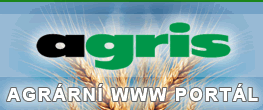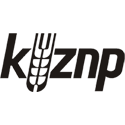The Week in Europe 19-25/05/01
04.06.2001 | Euroskop

EU news in brief
EURO 1 billion for European film and audiovisual industry: two European Union initiatives
The European Commission and the European Investment Bank Group (EIB Group) have joined forces to offer the European film and audiovisual industry a range of financial products and budgetary aid instruments enabling it to take up the cultural and technological challenges it faces in a globalised economy. The initiatives of the two institutions were presented on 17 May 2001 in Cannes by Ms Viviane Reding, European Commissioner responsible for cultural and audiovisual issues, and Mr Philippe Maystadt, EIB Group President, at a meeting of financiers and representatives from the European film and audiovisual sector. These round table discussions underlined the well-tailored and complementary nature of the facilities proposed by the EIB Group and the financial assistance provided under the European Union's Media Plus programme aimed at enhancing the competitiveness of the European film and audiovisual industry by fostering development of transnational ventures allowing operators to benefit fully from the size of the European Single Market; promoting the creation of European cinematographic, television and educational works; acting as a catalyst for support from the financial and banking sector for schemes undertaken by European audiovisual firms, large groups and SMEs; assisting the European audiovisual industry to adapt to new technologies and the digitalisation of production, distribution and archives. [Background text IP/01/717]
EU succeeds in promoting market access in favour of least developed countries
At the conclusion of the 3rd United Nations Conference on the Least Developed Countries, the international community for the first time ever adopted the objective of duty-free and quota-free market access for all products originating in the LDCs. This agreement responds to a key objective for the EU for the Conference, which it hosted in Brussels last :week. The EU had campaigned strongly to achieve an international agreement to improve market access in favour of the 49 least developed countries at the Conference. This decision will expand the impact of the "Everything but Arms" initiative, already implemented by the EU, as other developed countries will take action in the same direction. The Conference also achieved international support for other EU initiatives in support for LDCs development efforts. [Background text IP/01/721]
Stay Safe online - new website for internet safety awareness raisers
A new website for Internet safety awareness raisers is being launched by the European Commission. The Awareness Exchange website, http://www.saferinternet.org/, is a key tool to empower users to respond to illegal or harmful contents on the Internet. The website is part of the Action Plan on promoting safer use of the Internet, the European Union's response to tackling the controversial issue of illegal and harmful content on the Internet. The site is also a valuable resource for information on where to find advice on safer use of the internet, how to report illegal content through the network of hotlines, examples of current filtering and rating software allowing users surf and chat in a safe environment. It also has details on EU funded projects and activities and how to apply for EU funding. The Safer Internet website is an important resource for awareness raisers, parents, teachers and children, in fact anyone who is concerned with safe use of the Internet and wants to know what is happening at a European level to address this important issue. For further information on the Internet Action Plan, funding possibilities and upcoming events, please see http://www.saferinternet.org/,
or e-mail: info@saferinternet.org
EU signs Protocol to phase out world's most toxic chemicals
On 22-23 May 2001 in Stockholm, a conference to sign the international Convention on Persistent Organic Pollutants (POPs) will take place. This Treaty controls the production, import, export, disposal, and use of the most toxic chemicals ever created. It establishes tough international controls on an initial cluster of 12 of these chemicals, of which most are subject to an immediate ban. These are aldrin, chlordane, DDT, dieldrin, endrin, heptachlor, mirex, toxaphene, polychlorinated biphenols (PCBs), hexachlorobenzene, dioxins and furans. The global POPs Convention was negotiated in the framework of the United Nations Environment Programme (UNEP), and finalised in December 2000 in Johannesburg by delegates from 122 countries. The Swedish environment minister Kjell Larsson will sign the Convention on behalf of the European Community. [Background text IP/01/730]
Commission boosts efforts to improve cancer research in Europe
On 22-23 May 2001, European Research Commissioner Philippe Busquin will be bringing together European cancer research managers with top cancer researchers to improve coordination of European cancer research. Significant differences in research performance between the US and the EU exist, which mostly result from fragmentation of European efforts and poor coordination between various networks of excellence in the different Member States. The meeting will bring together 45 leading cancer researchers, clinicians and cancer research managers from 30 countries. The aim is to promote cooperation and coherence in European work on surveillance of cancer trends, transfer of knowledge and fast evaluation of new treatments. The first day of the conference will focus on the scientific aspects of research and the second day on better coordination of national activities in the fields of prevention, screening and better research strategy. [Background text IP/01/731]
Commission wishes to enhance Union citizens' right of movement and residence
The right of Union citizens and their families to move and reside freely in the territory of the Member States needs enhancing, according to the European Commission, which puts forward a proposal for a directive. The proposed instrument contains a series of specific measures to consolidate the common legal cornerstone of citizenship of the European Union. On the initiative of Mr António Vitorino, the Member responsible for Justice and Home Affairs, the Commission adopted a proposal for a European Parliament and Council Directive to enhance the right of citizens of the Union and their family members to move and reside freely within the territory of the Member States. [Background text IP/01/734]
Commission strengthens the role of the Hearing Officer in competition proceedings
The European Commission has decided to enhance the role of the Hearing Officer in its merger reviews and anti-trust proceedings. The Hearing Officer plays an important role in safeguarding the right of defence, a key principle of law to which the Commission is fully committed. From now on, the Hearing Officer will be attached directly to the Competition Commissioner and his/her report will be made available to the parties and will be published in the European Union's Official Journal, greatly contributing to a better transparency in the competition decision-making process. [Background text IP/01/736]
Taxation : Commission outlines its priorities
The European Commission has presented a comprehensive strategy for the EU's future taxation policy. The Commission considers that the Community must ensure that tax policy supports broader EU policy objectives such as the goal set by the Lisbon European Council of making the EU the most competitive economy in the world by 2010. Increased tax coordination would help Member States to meet these objectives. But while a large measure of harmonisation is necessary in the VAT and excises fields, in other tax fields tax coordination does not imply tax harmonisation. A reasonable degree of tax competition within the EU is healthy and should be permitted. The Commission intends to focus more attention in particular on the tax problems facing individuals and businesses operating within the Internal Market. It will soon present options for coordinated action to tackle tax obstacles and inefficiencies in the company tax field, as well as reports concerning alcohol taxation and vehicle taxation. To achieve progress, the Commission intends to be more pro-active in taking legal action where Member States' national tax rules or practices do not comply with the Treaty. In addition, "enhanced cooperation" and non-binding approaches such as recommendations could be utilised instead of legislative proposals where appropriate. [Background text IP/01/737]
The full text of the Communication "Tax policy in the European Union Priorities for the Years Ahead" will be available on the Europa internet site:
http://europa.eu.int/comm/taxation_customs/whatsnew.htm
Commission adopts Communication on State aid and risk capital
The European Commission has adopted a Communication on State aid and risk capital. It sets out how the Commission will assess, under the state aid rules, measures designed to promote the growth of risk capital markets. An increase in risk capital is an objective which the European Union (EU) has been pursuing particularly strongly since the Lisbon European Council in March 2000. The Commission has recognised that public funds may play a part in achieving this. At the same time, it wants to maintain a careful control on state aid within the EU, and has found that existing state aid rules are not well adapted to the types of measures which have been developed by Member States' authorities to stimulate an increase in risk capital activity. [Background text IP/01/739]
Informační centrum Evropské unie při Delegaci Evropské komise v České republice
European Union Information Centre of the Delegation of the European Commission to the Czech Republic
Rytířská 31, 110 00 Praha 1, Česká republika
Tel.: (+420 2) 216 10 142 Fax: (+420 2) 216 10 144
Další články v kategorii
- Čeští zemědělci připravují další protest, bude nejspíš v druhé polovině května (29.04.2024)
- Na ochranu přírody jdou miliardy. Smysl to má, opatření fungují, dokázala rozsáhlá studie (29.04.2024)
- Vinařům způsobily mrazy škodu přes dvě miliardy Kč, zánik hrozí většině ovocnářů (29.04.2024)
- Souhrn událostí uplynulých dní – 26. – 28.4. 2024 (29.04.2024)
- Místo dvou lvů jen jeden. Minerálka Magnesia po jedenácti letech mění logo (28.04.2024)

 Tweet
Tweet





